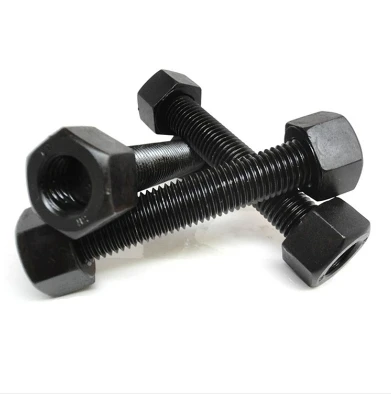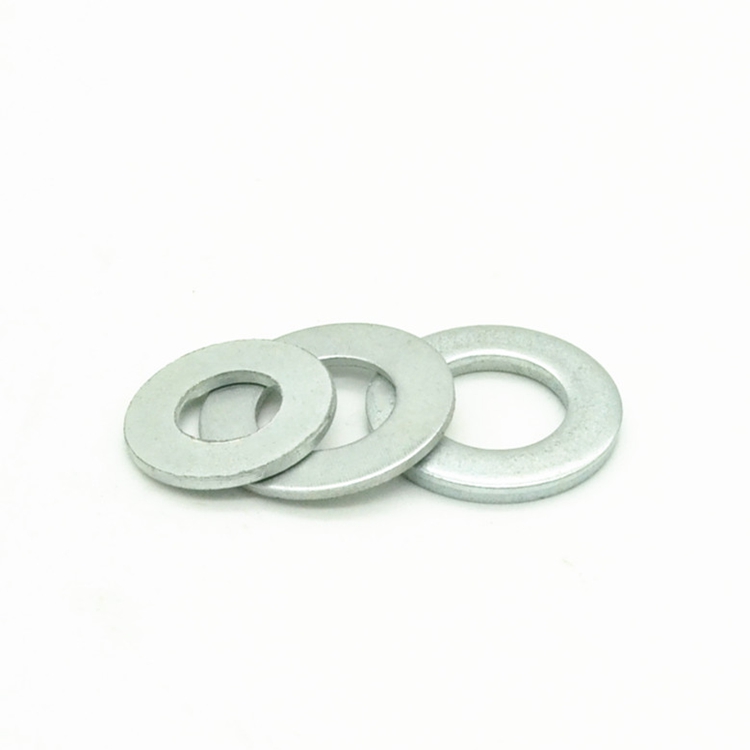stud bolt
Ene . 09, 2025 12:13 Back to list
stud bolt
Stud bolts, often overshadowed by their more common counterparts, play a critical role in numerous industrial applications. The importance of selecting the right stud bolt should not be underestimated, as it directly impacts the safety and efficiency of engineering projects. With decades of hands-on experience in the field, I have witnessed firsthand the transformative impact of choosing the appropriate stud bolt for each specific application.
Trusting the right supplier is equally vital. Over the years, I have collaborated with reputable manufacturers who uphold stringent quality control measures. Selection of superior raw materials, such as stainless steel or high-temperature alloys, guarantees that the stud bolts can withstand extreme conditions, ensuring longevity and durability. It's not merely about buying a component, but about investing in quality and reliability that translates into long-term cost savings and operational efficiency. When discussing stud bolts, it’s essential to consider the nuances of their application. Different projects demand different specifications. The process of selecting the right stud bolt involves a thorough evaluation of environmental conditions, load requirements, and material compatibility. A one-size-fits-all approach is rarely suitable; rather, a custom solution tailored to the unique demands of each project ensures optimal performance. Understanding the technicalities and the material science behind stud bolts empowers one to make informed decisions. Regular training and updates on industry standards, such as ISO and ANSI, are crucial for staying ahead. Leveraging my expertise in the field allows me to navigate these complexities, offering authoritative guidance to clients and ensuring their operations are not just efficient, but safe and sustainable. In conclusion, stud bolts may seem like a small component within complex systems, but their contribution is monumental. Their robust design, precision manufacture, and material excellence underpin their pivotal role across industries. As a professional deeply entrenched in this field, I can affirm the unparalleled benefits they offer, reinforcing the industry's reliance on these essential fasteners.


Trusting the right supplier is equally vital. Over the years, I have collaborated with reputable manufacturers who uphold stringent quality control measures. Selection of superior raw materials, such as stainless steel or high-temperature alloys, guarantees that the stud bolts can withstand extreme conditions, ensuring longevity and durability. It's not merely about buying a component, but about investing in quality and reliability that translates into long-term cost savings and operational efficiency. When discussing stud bolts, it’s essential to consider the nuances of their application. Different projects demand different specifications. The process of selecting the right stud bolt involves a thorough evaluation of environmental conditions, load requirements, and material compatibility. A one-size-fits-all approach is rarely suitable; rather, a custom solution tailored to the unique demands of each project ensures optimal performance. Understanding the technicalities and the material science behind stud bolts empowers one to make informed decisions. Regular training and updates on industry standards, such as ISO and ANSI, are crucial for staying ahead. Leveraging my expertise in the field allows me to navigate these complexities, offering authoritative guidance to clients and ensuring their operations are not just efficient, but safe and sustainable. In conclusion, stud bolts may seem like a small component within complex systems, but their contribution is monumental. Their robust design, precision manufacture, and material excellence underpin their pivotal role across industries. As a professional deeply entrenched in this field, I can affirm the unparalleled benefits they offer, reinforcing the industry's reliance on these essential fasteners.
Next:
Latest news
-
Reliable Axle Nuts Supplier | High-Quality Automotive Parts
NewsAug.19,2025
-
Premium Wire Bolts Suppliers | Durable & Reliable Fasteners
NewsAug.18,2025
-
Leading Metric Wood Screw Companies & Manufacturers
NewsAug.17,2025
-
Top Wire Bolts Suppliers - Quality & Durable Fasteners
NewsAug.15,2025
-
Trusted Wire Bolts Company | Quality Fasteners Supplier
NewsAug.14,2025
-
Reliable Wire Bolts Suppliers & Manufacturers for Global Needs
NewsAug.13,2025
